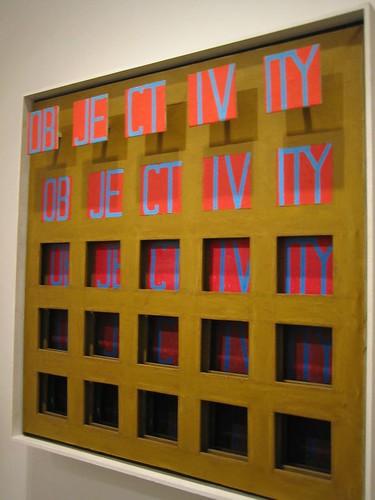 There has been a lot of talk, much of it oblique, about public relations and objectivity- or the lack of it. Much of the most recent talk has stemmed from an active effort to relieve the long-time ban on corporate and agency PR agent participation in wikipedia edits, leading to a Facebook group started by Phil Gomes with much active participation from both sides. A fascinating discussion that I have been honored to be a (very) small part of and more so to simply watch it take place. Perhaps it will lead to some practical conclusions and changes.
There has been a lot of talk, much of it oblique, about public relations and objectivity- or the lack of it. Much of the most recent talk has stemmed from an active effort to relieve the long-time ban on corporate and agency PR agent participation in wikipedia edits, leading to a Facebook group started by Phil Gomes with much active participation from both sides. A fascinating discussion that I have been honored to be a (very) small part of and more so to simply watch it take place. Perhaps it will lead to some practical conclusions and changes.
At part of the heart of the Wikipedia matter is the notion that public relations people are not, by profession, objective, and therefore cannot be trusted to act ethically. Aside from that being a rather fantastic conclusion (lack of ethics) to draw from what is really a more mundane fact (lack of objectivity), I have always found the line of thought puzzling.
I was reminded again of this topic thanks to a discussion with CustomScoop’s Jen Zingsheim during my regular guest stint on the Media Bullseye Roundtable podcast. At the center was a post by Richard Bailey on objectivity and neutrality. Referencing the Wikipedia fight, he goes on to make a broader appeal to forgive PR’s lack of neutrality on the grounds that PR can still be objective.
I understand that thinking, if you define objectivity as the presentation of facts that cannot be denied. Certainly this is at the heart of the Wikipedia struggle- the ability of partisans who hold first-hand knowledge to be able to correct simple factual errors. However, I think we should take a step back and say: why apologize for not being neutral, for being biased?
The fact is, even journalists, as objective or neutral (I have a harder time than Bailey distinguishing between these two terms) as they try to be, always have a point of view. It can’t be helped. It behooves the audience to know what they can about the author, editor, contributor, correspondent or publisher and make determinations about the trustworthiness of content by considering the source and adjusting to that.
Public relations? No need to be neutral, objective or whatever you want to label it. PR is partisan. Ethical is good enough.
Photo Credit: joelogon (Flickr)
Good post Doug. Can’t agree more.
Good post, Doug, and your conclusion is spot on. Wikipedia’s view is that because PR people are paid advocates, it tarnishes edits we might make to articles about our employers or clients. But let’s face it: Anybody editing an article is doing so because they have an interest. They’re subject matter experts (or believe they are, anyway), they work in the field, they’re fans, or whatever. What they’re not is neutral or unbiased. But because they’re not paid, they’re okay. On the other hand, because PR practitioners ARE paid, the assumption is that anything we do is spin.
On the CREWE Facebook page, Wikipedia advocates keep insisting that simple factual corrections that are independently verifiable will not be a problem. Yet we’ve heard stories about people making these kinds of corrections getting banned from Wikipedia. Meanwhile, Jimmy Wales is proposing an outright ban.
Ultimately, PR people behaving ethically and abiding by the rules, making factual and independently verifiable corrections will lead to a more accurate Wikipedia. But a bias (or non-neutral point of view) toward PR is keeping that from happening much of the time.
That said, PR counselors do need to understand the rules and abide by them. Those that don’t only make it harder for the rest of us.
[…] Haslam recently wrote a blog post about obsessiveness and it’s place in Public Relations that I found to be not only […]
[…] Haslam, a media and communications professional, had a great quote that […]